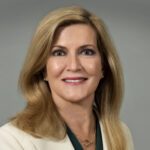Governor Baker of Massachusetts declared a State of Emergency on March 10, 2020, due to the COVID-19 pandemic. Since that date, he has issued 13 Executive Orders, culminating in the Order of March 13th, requiring the closure of all businesses deemed non-essential, starting March 24 at noon, and continuing until April 7, 2020. In addition, the Massachusetts Department of Public Health has issued close to a dozen orders also related to the pandemic response. A full list of those orders and links to their content can be found here.
On March 16, 2020, all “public and private elementary and secondary (K-12) schools in the Commonwealth, excluding residential and day schools for special needs students” were ordered to “suspend all normal, in-person instruction and other educational operations” until April 6, 2020. For many independent schools, this mandated closure coincided with the spring school vacation, but many have had to pivot quickly to transition to remote learning platforms for when spring break is over, and also determine how to best serve international students who could not safely return home.
The Executive Order issued on March 23rd “does not apply to public and private elementary and secondary (K-12) schools in the Commonwealth, which are subject to the March 15, 2020 Order Temporarily Closing All Public and Private Elementary and Secondary Schools, as may be subsequently amended, which suspended all normal, in-person instruction.” Yet the following business operations are deemed to be “essential services,” and thus permitted to continue functioning (with highlights below applicable to K-12 independent schools):
- Company cafeterias – in-plant cafeterias used to feed employees; food service workers in residential schools with students who are unable to leave campus;
- Security staff to maintain building access control and physical security measures;
- Educators and staff supporting public and private emergency childcare programs, residential schools for students with disabilities, K-12 schools, colleges, and universities for purposes of facilitating distance learning, provision of school meals, or performing other essential student support functions, if operating under rules for social distancing.
We are here to help independent schools navigate the rapidly changing mandates that are issued almost daily. Please do not hesitate to contact Boston-based Susan Schorr, Vice Chair of our Education Law Practice Group, or Linda Johnson, Chair of the firm’s Education Law Group, with any questions you may have.
Susan E. Schorr
857-305-1960 work direct
617-448-5113 mobile
susan.schorr@mclane.com
Linda Johnson
603-628-1267 work direct
603-566-6287 mobile
linda.johnson@mclane.com
